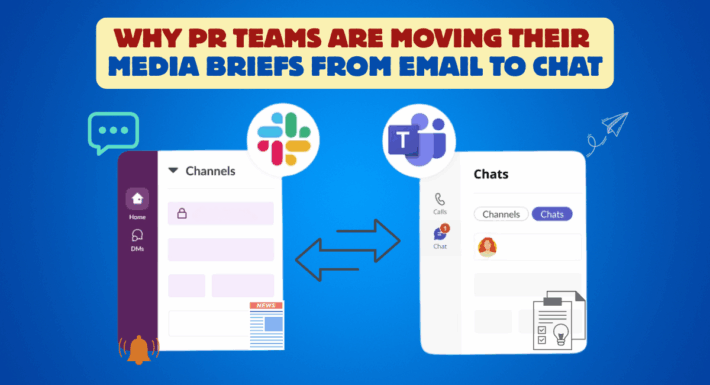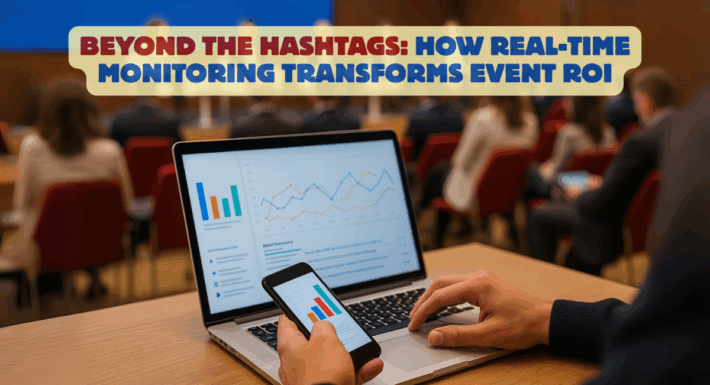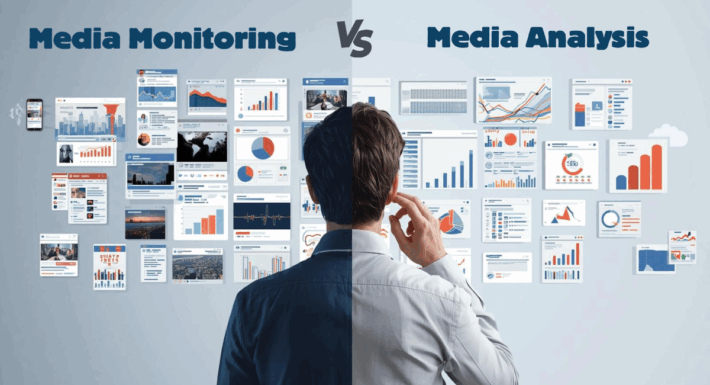Three Factors to Help Pharma Companies Build Brand Trust Through the Media: A Fullintel Study

Trust in pharmaceutical companies has increased since the pandemic, but as the least trusted subsector of healthcare, the industry still has a steep road to climb.
However, by integrating messaging and content reaffirming key attributes of trustworthiness – including ability, benevolence, and integrity – pharmaceutical brands can continue building positive trust as the pandemic’s darkest days recede from memory.
Those are some of the findings of an original study on pharmaceutical trust conducted by myself and University of Connecticut Assistant Professor Tyler Page. It’s the most recent of a series of trust studies we’ve conducted, with a similar examination of consumer trust last year receiving the Arthur W. Page Center Benchmarking Award at the International Public Relations Research Conference (IPRRC).
We went on to test these trust factors in relation to pharma companies to understand how they impact reputation and consumers’ intent to use pharma products. We discovered that doing good (as perceived by a brand’s audience) builds reputation while demonstrating ability drives action (such as purchasing a particular type of medication).
Let’s dive into the specifics.
The Building Blocks of Trust
As I mentioned up top, trustworthiness has three distinct dimensions that have been identified and tested by experts:
- Ability, or competence within a specific domain and the effectiveness of the company’s products
- Benevolence, or a desire to take care of the trustor; this includes purpose work (such as corporate social responsibility) that affects the company’s core audience positively
- Integrity, or adherence to an acceptable set of principles; this includes transparency, disclosure, legal issues, but also purpose work that isn’t necessarily relevant to the company’s core audience
We selected four major pharma brands and conducted a nationally representative survey of more than 400 respondents using the above three-factor model of trustworthiness to assess and predict brand reputation. We wanted to measure both the company’s reputation and the public’s intent to use the company’s products.
However, before diving into the study’s findings, it’s worth mentioning that companies must be authentic in their attempts to build trust or the whole thing could backfire spectacularly.
“It’s about walking the talk – all the time,” confirms Anthony Farina, Chief Corporate Affairs &
Communications Officer at CSL. “This is what stakeholders expect today as table stakes – transparency, doing good, and integrity. If you’re doing the status quo and not progressing as an organization as well as an industry, you’ll be left behind.”
‘An Uninformed Perception of the Industry’
The results showed that the three factors – ability, benevolence, and integrity – are statistically significant in building trust for pharma brands. If brands authentically communicate these attributes in their outreach and content, they’ll likely be able to foster feelings of trust in their brand.
Part of that battle, explains media measurement expert Katie Paine of Paine Publishing, lies in providing more proactive disclosure and information to consumers. “Less informed people trust less,” she says. “More informed people – as during COVID when people actively sought out more information about pharma companies and vaccines – trust more. Familiarity is a factor that can breed trust.”
Indeed, Paine says much of the public’s distrust of the industry largely boils down to a lack of information. “There has been so much negative press for so long about pharma in general,” she says, “but part of that is due to an uninformed perception of the industry.”
“If the industry could just change its name to something like ‘kitten,’ that might help some people get over that perception.”
Focus on Factors Most Important to Your Brand
But while all three trust factors are interrelated, and each of them helps build reputation (if done well), the key trust factor for your pharma brand largely depends on your goal.
Want to increase uptake in a particular product? According to the results of our study, you should focus on ability.
Associate Professor of the Practice, Strategic Communication at Boston University’s College of Communication Monique Kelley agrees, adding that for many consumers of pharmaceutical products trust boils down to essentially one thing: Effectiveness. “People are so loyal to consumer brands. But when it comes to medical treatments and therapies, loyalty goes out the window. It comes down to what is most effective,” says the experienced communications consultant in the pharma industry. “Personally, I would choose the best product to treat an illness – the ability factor – even if it’s not from the brand with the best reputation.”
Indeed, while benevolence drives how people think about a brand, it doesn’t significantly impact intended use. That’s the domain of the ability factor, which shouldn’t come as a shock, considering we’re talking about people’s health (and lives).
On the other hand, companies looking to bump up their overall reputation should put more time into benevolence and integrity. But integrity also has a strong correlation to negative word of mouth. If a pharma brand is perceived as lacking integrity, it can result in disaster. Similarly, however, a foundation of integrity built over time can help shield a brand from the worst of the fallout when a crisis hits.
Either way, the study showed that benevolence has the largest effect on reputation (t = 11.878, p < .001, β = .464). Purpose work performed that directly affects a company’s audience drives reputation more than integrity (t = 4.015, p < .001, β = .177) or capability (t = 4.950, p < .001, β = .170).
Depending on your goal, you may also want to tweak your messaging to correspond with your preferred factors. Just keep in mind it can be much more difficult to convince some audience segments than others.
“There are certain populations where it may be important to invest more in building trust through benevolence due to embedded mistrust in healthcare, pharma, or doctors – especially among marginalized populations,” says Susie Tappouni, Vice-President, Corporate Affairs and Patient Advocacy at Amgen.
Applying the Findings of our Study
So how do comms teams apply these findings in their everyday content development and messaging?
A few takeaways:
- If the goal is boosting reputation, messages should focus on the good the brand is doing for its audience–understand your core audience
- If the goal is to get more people using the company’s products, messaging should focus on the fact that the company makes the best products
- At the same time, pharma companies must manage any negative connotations around integrity, as this can single-handedly demolish the firm’s reputation
- All these factors can be integrated into media measurement strategies to understand their impact
As we’ve seen, each factor plays a different and necessary role in increasing pharmaceutical brand trustworthiness. In our view, brands that develop communications strategies that address these factors will increase their overall brand trust.
“Understanding your audience and building trust with your audience is more important than ever,” adds Tappouni. “This study is valuable in providing directional measurement of trust, and connecting these specific factors to potential outcomes.”




